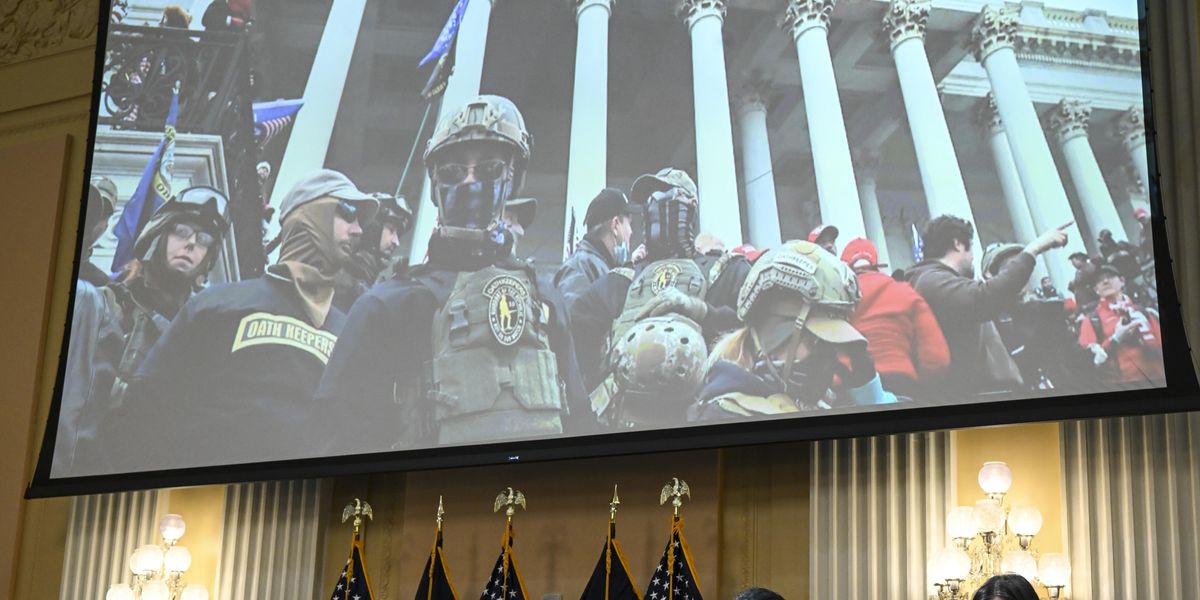
On Wednesday, the January 6 committee releases its full report. Already, the panel made news by making four criminal referrals for the former president. Senate Minority Leader Mitch McConnell, of all people, put it well in response: "The entire nation knows who is responsible for that day."
These are just the beginning of the necessary reforms. There should be guaranteed funding for states to conduct reliable postelection audits.
In the wake of the committee's extraordinary work, an important remaining question is not who caused the insurrection but rather what caused the insurrection.
First, let's take a moment to appreciate the panel's achievement. It made clear through riveting hearings and careful leaks that this was not just a rally that got out of control but a vigorously pursued plot to overthrow American democracy. The committee documented extraordinary crimes. We thought we knew it all, but it was gripping.
Such congressional investigations once regularly commanded headlines. The most famously effective was the Senate Watergate committee in 1973. That--together with the Church Committee, which exposed wrongdoing by the FBI and CIA--dominated the news but also led to reforms, from the federal campaign finance laws to the establishment of the joint congressional intelligence committee.
Reform sometimes follows scandal. And there has been no greater scandal than Donald Trump's effort to block the peaceful transfer of power.
But putting the blame squarely and exclusively on Donald Trump is not enough to protect our democracy. Trump did not start the myth of voter fraud--that has been a partisan staple for two decades now. His attempt to subvert the 2020 election exposed vulnerabilities in our legal and electoral systems. Most of them remain, waiting for a second Donald Trump to come along and exploit them again. Those weaknesses are what caused the January 6 insurrection. The committee's work could have even longer-lasting benefits if its revelations help spur reform.
It starts with fixing the Electoral Count Act. Trump's loony reading of the creaky and outdated 19th-century law provided the foundation for his pressure campaign against Vice President Mike Pence. The proposed reform makes clear that vice presidents have a merely ministerial role and makes it harder for members of Congress to object to duly cast electoral votes. These changes cement that the reading of the electoral votes is a ceremony, nothing more. They and other important fixes to the Electoral Count Act are included in this week's budget bill.
That bill also includes federal funding to upgrade election infrastructure and keep election officials safe, though not nearly enough. We should never forget that Trump's pressure campaign did not stop with Pence. Trump personally called state election officials, urging them--without any cogent rationale--to overturn his defeat. Trump's counsel, Rudy Giuliani, falsely accused local election workers of fraud. As a result of Trump's campaign against these public servants, election workers in several states were harassed, threatened, and chased from their homes. Going forward, Congress must act decisively to protect election officials in their homes and in their offices, providing a reliable source of funding for much-needed security.
Other changes will require sustained pressure from the American people. National baseline standards for federal elections should be high on that list. For example, Trump's team argued for the invalidation of Pennsylvania's slate of electors, on the theory that state officials should not have complied with a state supreme court ruling requiring them to count mail votes received several days after the election but postmarked by Election Day. A spurious argument, but the silence of federal law on when and how mail ballots should be counted gave it unnecessary fuel. With 50 states conducting the election with almost 50 different procedures, close elections will lead to similar claims in the future.
The Constitution unquestionably gives Congress the power to fix this problem. With every state playing by the same rules, there would be less room for allegations of impropriety.
These are just the beginning of the necessary reforms. There should be guaranteed funding for states to conduct reliable postelection audits. Congress should fund state efforts to combat election-related disinformation and restore the protections of the Voting Rights Act to prevent racial discrimination in voting--Trump's attempt to overturn the 2020 election primarily targeted voters of color. The list goes on.
The January 6 committee performed a vital service. It left us with indelible images. But now that its work is over, focusing solely on Trump himself would be a major mistake. Mending weak points in our election system should be a bipartisan priority. It will start with the Electoral Count Act, but I hope it will not end there.
This content originally appeared on Common Dreams and was authored by Michael Waldman.
Michael Waldman | Radio Free (2022-12-22T11:03:07+00:00) How to Make Sure Another January 6 Never Happens Again. Retrieved from https://www.radiofree.org/2022/12/22/how-to-make-sure-another-january-6-never-happens-again-2/
Please log in to upload a file.
There are no updates yet.
Click the Upload button above to add an update.